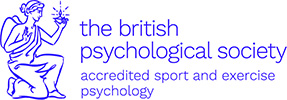About this course
The programme is designed to meet BPS Stage 2 requirements in Sport and Exercise Psychology and eligibility for HCPC registration.
- The School of Sport and Exercise Sciences is ranked first in the North West and top 20 in the world for Sports Science (QS World University Rankings 2025)
- Study full-time or part-time
- Benefit from quality teaching and supervision provided by experienced sport and exercise psychologists
- Study on a course underpinned by high-grade research and practice, designed to meet BPS Stage 2 training requirements in Sport and Exercise Psychology and eligibility for registration as a Sport and Exercise Psychologist with the HCPC
- Enjoy the world-class facilities in the award-winning Tom Reilly Building
- Look forward to enhanced career opportunities in Sport and Exercise Psychology professional practice and promotion, as well as education, teaching and research
The programme is underpinned by a strong focus on equipping future Sport and Exercise Psychologists with the competencies required to work in a range of professional practice scenarios. You will work closely with academic staff who are leaders in their research field and experts in training. In keeping with the nationally agreed curriculum competences for Sport and Exercise Psychologists, you will develop your professional skills in teaching and training (education and dissemination), ethics and professional standards, research and consultancy through your own work-based learning experiences, taught sessions on the programme and extensive supervision.
Course modules
Discover the building blocks of your programme
The Professional Doctorate in Sport and Exercise Psychology is available in various durations to suit your circumstances. The minimum is a statutory 2 years as a full-time student. The equivalent part-time programme is 4 years long. In addition, we also offer a full-time programme that is 3 years duration, and a part-time version that lasts up to 6 years.
All programme variants have the same essential structure, with the same taught sessions that occur primarily in the first year. The programme duration you choose is largely dictated by your work placement(s) and other work related opportunities you may secure. For example, if you are working on doctorate related activity full-time then it is likely you will opt for a full-time programme duration. If you are working half-time or more, but less than full-time, then you must opt for a part-time version. Anything less than half time is not suitable for doctorate completion.
The number of years you chose to study for will mainly be dictated by how busy you find yourself and how much spare time you have for the additional paperwork that the doctorate necessitates. For some, a two-year full-time programme is very packed and proves difficult, and the third year programme suits them better. The programme team at LJMU are happy to discuss your needs and what might suit you best depending on your personal circumstances; no two applicants are alike. It is also possible to change your study mode e.g. from full to parttime according to your circumstances.
If you wish to avail yourself of the Doctoral Loans scheme, please note that currently this is only available for programmes of durations of 3 or more years. Find out more.
Further guidance on modules
Modules are designated core or optional in accordance with professional body requirements, as applicable, and LJMU’s Academic Framework Regulations. Whilst you are required to study core modules, optional modules provide you with an element of choice. Their availability may vary and will be subject to meeting minimum student numbers.
Where changes to modules are necessary these will be communicated as appropriate.
Core modules
Professional accreditation/links
Designed to meet British Psychological Society (BPS) Stage 2 requirements in Sport and Exercise Psychology and eligibility for Health and Care Professions Council (HCPC) registration.

Your Learning Experience
An insight into teaching on your course
Study hours
All teaching is on Thursdays 10am-12pm and 2pm-4pm, leaving you some time in the day to meet with your supervisor. Sessions are formally scheduled from January to June and September to December in year one and on an ad hoc basis in subsequent years.
Teaching methods
You will develop your skills in teaching and training (education and dissemination), research, consultancy and the generic professional skills needed to qualify as a Sport and Exercise Psychologist. This is achieved through your own work-based learning experiences, taught sessions on the programme and extensive supervision.
Applied learning
To be offered a place on the programme, you need to have secured your own placement, or work related opportunities (or a combination of the two) to satisfy the hours of client contact required. Once on the programme, you are likely to encounter other opportunities, sourced by you or our staff (who have extensive networks with numerous sport and exercise organisations) that you may choose to undertake as further support for your training.
How learning is monitored on your programme
To cater for the wide-ranging content of our courses and the varied learning preferences of our students, we offer a range of assessment methods on each programme.
The Professional Doctorate in Sport and Exercise Psychology programme requires a portfolio of work to be completed. This includes: a log and reflective diary of professional practice and consultancy/teaching plus training case studies. In terms of research, you will be expected to produce a systematic literature review and two empirical papers of publishable quality.
Where you will study
The programme is delivered in the City Campus, in the £28 million Tom Reilly Building, which provides world-class sport and exercise science facilities.
Course tutors

Dr Martin Eubank
Programme Leader
The most rewarding aspect of my role is providing a sport psychology professional training route that enables students to develop both professionally and personally to achieve their ambition to become a registered Sport and Exercise Psychologist.
The most rewarding aspect of my role is providing a sport psychology professional training route that enables students to develop both professionally and personally to achieve their ambition to become a registered Sport and Exercise Psychologist.
Associate fellow of the British Psychological Society, Dr Eubank is Chief Assessor on the BPS Stage 2 Qualification in Sport and Exercise Psychology. As a board member, he has a good oversight of the provision of sport and exercise psychology training in the UK. Dr Eubank's research interests focus on Sport Psychology Practitioner development. He explores how the identity, congruence and competence of Sport Psychologists is informed by the learning experiences they encounter in education, professional training and applied practice and how sport culture informs effective sport psychology service delivery.
Career paths
Further your career prospects
LJMU has an excellent employability record with 96% (HESA 2018) of our postgraduates in work or further study six months after graduation. Our applied learning techniques and strong industry connections ensure our students are fully prepared for the workplace on graduation and understand how to apply their knowledge in a real world context.
A growing number of Sport and Exercise Psychology graduates work in applied settings as Sport and Exercise Psychology practitioners and promoters, as well as taking up positions in Sport and Exercise Psychology education, teaching and research.
Tuition fees and funding
- Full-time per year:
- £8,380
The University reserves the right to increase tuition fees in accordance with any changes to the maximum allowable fees set by the UK Parliament. In the event of such a change, any fee increase will be subject to a maximum cap of 10% of the total course cost as originally stated at the time of your offer.
Fees
The fees quoted at the top of this page cover registration, tuition, supervision, assessment and examinations as well as:
- library membership with access to printed, multimedia and digital resources
- access to programme-appropriate software
- library and student IT support
- free on-campus wifi via eduroam
Additional costs
Although not all of the following are compulsory/relevant, you should keep in mind the costs of:
- accommodation and living expenditure
- books (should you wish to have your own copies)
- printing, photocopying and stationery
- PC/laptop (should you prefer to purchase your own for independent study and online learning activities)
- mobile phone/tablet (to access online services)
- field trips (travel and activity costs)
- placements (travel expenses and living costs)
- student visas (international students only)
- study abroad opportunities (travel costs, accommodation, visas and immunisations)
- academic conferences (travel costs)
- professional-body membership
- graduation (gown hire etc)
Funding
There are many ways to fund postgraduate study for home and international students. From loans to International Scholarships and subject-specific funding, you’ll find all of the information you need on our specialist postgraduate funding pages.
Please be aware that the UK’s departure from the EU may affect your tuition fees. Learn more about your fee status and which tuition fees are relevant to you.
Entry requirements
You will need:
Qualification requirements
How to apply
Securing your place at LJMU
To apply for this programme, you are required to complete an LJMU online application form. You will need to provide details of previous qualifications and a personal statement outlining why you wish to study this programme.
Applications for students starting in January 2026 will open on 1 June 2025 and close on 30 September 2025. Please note we have places available for seven students.
Your university life
From accommodation and academic support to clubs and societies. Find out what LJMU has to offer.
Related Links
Talk to our students
Connect with a current LJMU student for advice and guidance on university life, courses and more.
See what our students are saying
At LJMU we want you to know you’re making the right choice by studying with us. You can see what our students are saying about their experience with us through their reviews on the following websites:
Related Links
News and views
Browse through the latest news and stories from the university
The University reserves the right to withdraw or make alterations to a course and facilities if necessary; this may be because such changes are deemed to be beneficial to students, are minor in nature and unlikely to impact negatively upon students or become necessary due to circumstances beyond the control of the University. Where this does happen, the University operates a policy of consultation, advice and support to all enrolled students affected by the proposed change to their course or module.




























